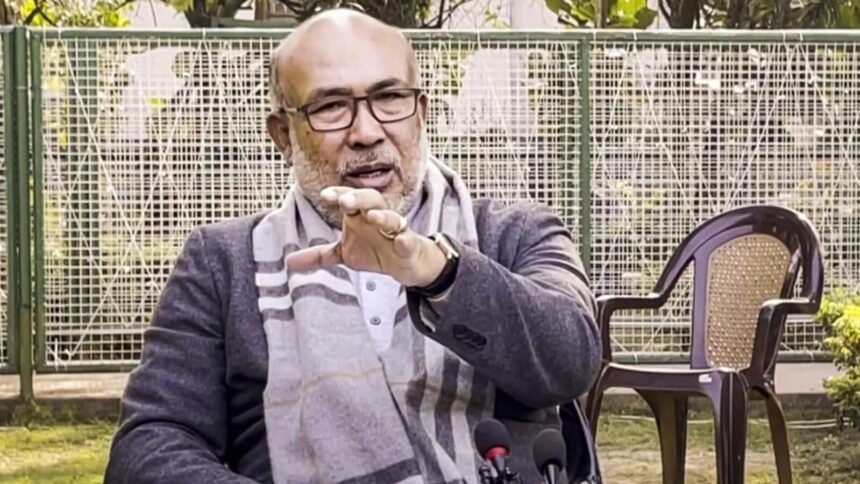Title: Political Tensions in Manipur: A Response to the Crisis
Introduction
Manipur, the northeastern state of India, continues to grapple with a significant crisis characterized by ethnic conflict and violence, particularly involving the Meitei and Kuki communities. Recent remarks from Chief Minister N Biren Singh have intensified political discourse around these issues, particularly following criticism from Congress leader Jairam Ramesh regarding Prime Minister Narendra Modi’s absence from the state during this turmoil.
Background of the Conflict
The current hardships in Manipur can be traced back to a variety of historical and political factors. Notably, the violence that erupted in May 2023, triggered by a rally from the All Tribal Students’ Union Manipur (ATSUM), has worsened the existing tensions between the Meitei and Kuki communities. The rally was a response to a Manipur High Court directive concerning the Meitei community’s push for inclusion in the Scheduled Tribes list.
Furthermore, the state witnessed severe ethnic clashes between the Naga and Kuki communities from 1992 to 1997, which marked one of the most violent periods in its recent history. Singh referred to this history while addressing the ongoing crisis, suggesting that the past actions of the Congress party have had lasting repercussions that contribute to the current instability.
Political Exchange: Biren Singh vs. Jairam Ramesh
In a direct response to Jairam Ramesh’s accusations of Prime Minister Modi’s neglect of Manipur, Chief Minister Biren Singh asserted that the turmoil today is rooted in the "past sins" of the Congress party. He cited the previous settlement of Burmese refugees and agreements with Myanmar-based militants as pivotal factors that have exacerbated the situation in Manipur. Singh’s remarks underscore a widely noted assertion within Indian politics where historical grievances and party legacies play central roles in contemporary criticisms.
Biren Singh emphasized that his recent public apology for the ongoing violence and the plight of displaced individuals was genuine and meant to foster reconciliation among communities. He expressed that such apologies were necessary to heal and move forward, yet criticized Ramesh for politicizing these tragedies rather than focusing on solutions.
Congress’s Counterargument
Jairam Ramesh refuted Singh’s claims by pointing out that it has been 19 months since the violence erupted, during which Prime Minister Modi has not visited Manipur. Ramesh described Singh as a "puppet" and stressed that the real issue lies not in the Chief Minister’s comments but in the Prime Minister’s lack of engagement with the affected communities. Ramesh’s critique aligns with a broader strategy within the Congress party to hold the BJP accountable for perceived inaction amidst regional crises.
A Call for Unity
Throughout these political exchanges, the primary focus has often strayed from the urgent need for peace and reconciliation among communities affected by violence. Singh has urged individuals to "forget the past" and build a new future for Manipur while maintaining a stance that acknowledges the complex history of ethnic tensions exacerbated by various political actors over decades.
Conclusion
The ongoing situation in Manipur is not merely a tale of political rivalry but a reflection of the deep-seated ethnic divisions and historical grievances that require urgent attention and resolution. As political leaders exchange barbs, the populations caught in the midst suffer the most, emphasizing the need for genuine dialogue, accountability, and healing in a state longing for peace and stability. As the state navigates these challenges, it becomes increasingly vital for leaders to prioritize the well-being of their constituents over political gain, fostering an environment conducive to lasting peace in this intricately woven social fabric.










